
 SHARE |
|
Gareth Porter (born 18 June 1942, Independence, Kansas) is an American historian, investigative journalist and policy analyst on U.S. foreign and military policy. A strong opponent of U.S. wars in Southeast Asia, and the Middle East, he has also written on the potential for diplomatic compromise to end or avoid wars in Korea, Vietnam, Cambodia, the Philippines, Iraq and Iran. He is the author of a history of the origins of the Vietnam War, Perils of Dominance: Imbalance of Power and the Road to War in Vietnam.
Porter has written regular news reports and news analyses on political, diplomatic and military developments in regard to Middle East conflicts for Inter Press Service since 2005. He was the first journalist to provide a detailed account of the alleged secret Iranian diplomatic proposal to the United States in 2003, and has published an in-depth analysis of an exit strategy for Iraq
OpEd News Member for 696 week(s) and 3 day(s)
208 Articles, 0 Quick Links, 0 Comments, 0 Diaries, 0 Polls
List By Date
Page 10 of 11 First Last Back Next 11 View All
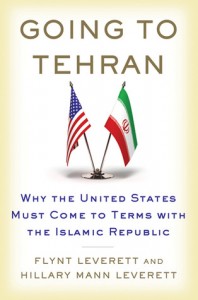
Challenging the Neocons on Iran Despite the Iraq debacle, neocons remain in the driver's seat setting official U.S. attitudes toward Iran, mixing worst-case assumptions with unrelenting hostility. But national security experts Flynt and Hillary Mann Leverett have stood up to this neocon-driven conventional wisdom.
Residents of Razed Afghan Village Dispute U.S. Case for Destruction U.S. forces destroyed the homes of Afghans across three districts of Kandahar province as part of Operation Dragon Strike,claiming they "were abandoned, empty and wired with ingenious arrays of bombs." The people who lived in the area have a different story.
Taliban Narrative in Afghan War Holdovers from the Bush administration helped sell President Barack Obama on a "surge" for Afghanistan, arguing that a counterinsurgency strategy could still work. However, two years later, the Taliban continues high-profile attacks almost anywhere in the country.
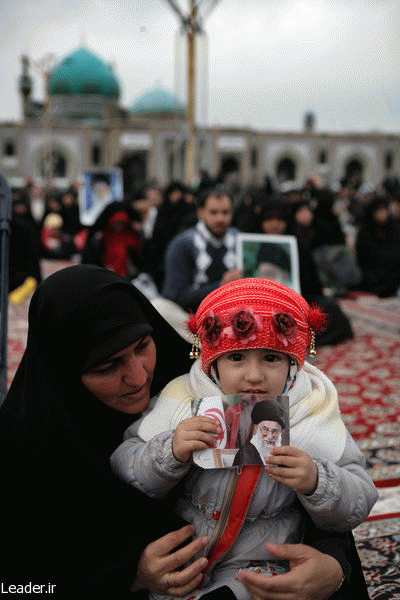
Iran Changes the Regional Dynamic Israel and -- to a lesser extent -- Saudi Arabia continue to dictate much of U.S. foreign policy in the Mideast, especially animosity toward Iran. But the Iran nuclear deal may change the dynamic toward a more balanced strategy at least in the long term if not the short, as Gareth Porter explains.
Bulgaria's Hezbollah "Hypothesis" And The EU Terror List The US and Israel continue a pattern of ignoring the actual evidence in high-profile terrorism cases in order to advance their political interests in relation to Iran and Hezbollah. That pattern was established nearly two decades ago with the US-Israeli pressure on Argentina to finger Iran in the 1994 AMIA bombing despite the absence of any evidence for such an accusation.
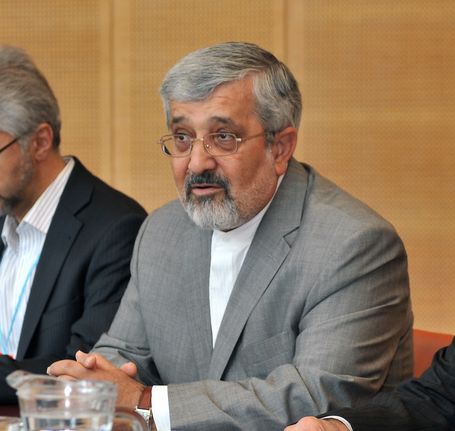
Details of Talks with IAEA Belie Charge Iran Refused Cooperation The detailed account given by Iran's permanent representative to the IAEA, Ali Asghar Soltanieh, shows that the talks in February came close to a final agreement, but were hung up primarily over the IAEA insistence on being able to reopen issues even after Iran had answered questions about them to the organization's satisfaction.
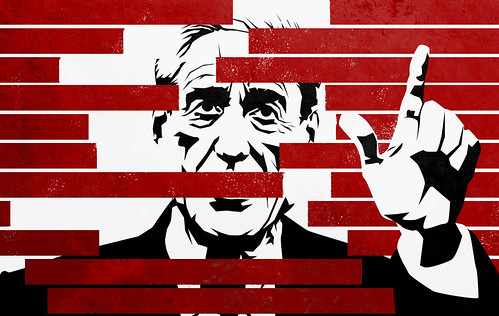
Mueller Stoked Trump-Russia Alarmism, Despite Finding No Collusion The Mueller report doesn't show the Trump campaign collusion the public had been led by media coverage to expect. But it is a siren song for a continued focus on the supposed threat to U.S. democracy from Russian "meddling". It is aimed at maintaining public support for a focus on the threat from Russia, which diverts the attention of the media and Congress from real threats to democracy from Trump's domestic agenda.

Iran Talks Hinge on Israeli Demand As international talks begin over Iran's nuclear program, President Obama has put forward an Israeli demand for the dismantling of a well-protected uranium processing plant, but it's less clear whether Obama will press the point if it means killing hopes for a peaceful settlement.
Long-term Afghan Presence Likely to Derail Peace Talks The announcement by U.S. Deputy Undersecretary of Defence Michele Flournoy in Congressional testimony Mar. 15 that the United States would continue to carry out "counter-terrorism operations" from "joint bases" in Afghanistan well beyond 2014 signaled that President Barack Obama has given up the negotiating flexibility he would need to be able to reach a peace agreement with the Taliban leadership.

Iran Offers Scaled-Back Nuke Program To seal a deal with world powers, Iran has agreed to structure its nuclear enrichment in ways only useful for generating electricity, but that still might not satisfy U.S. negotiators, writes Gareth Porter from Tehran for Inter Press Service.

Hezbollah Link to Bombing Doubted In assessing murky terrorism cases in the Middle East, one must take into account the political pressures on investigators and journalists to push the conclusion in a favored direction. That truism has surfaced again in a bombing at the Bulgarian resort of Burgas.
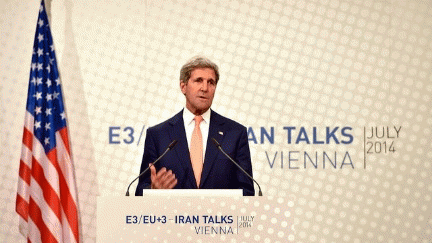
Zarif and Kerry Signal Momentum on Nuclear Pact Once the difference between the proposed duration of the two sides has been reduced to a very few years, both sides may well conclude that the difference is not important enough to sacrifice the advantages of reaching agreement.
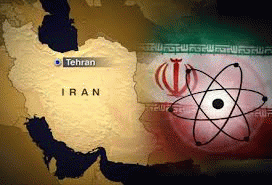
Pentagon Nixed 1998 U.S. Nuclear Scientists' Probe of Iranian Program In 1998, the Defence Department vetoed a delegation of prominent U.S. nuclear specialists to go to Iran to investigate its nuclear program at the invitation of the government of newly-elected Iranian President Mohammad Khatami. The veto eliminated the Khatami government's most promising initiative to promote a thaw in U.S.-Iran relations by weakening a key U.S. argument for viewing Iran as a threat.
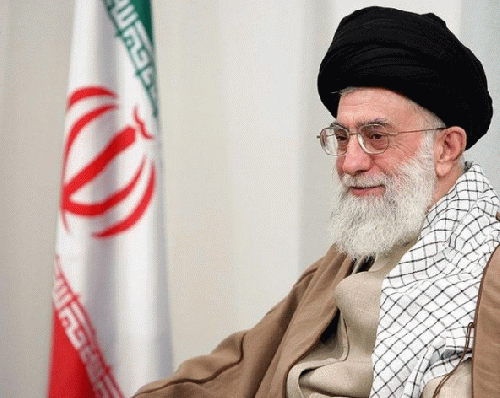
Khamenei Remarks Show Both Sides Maneuvre on Enrichment Secretary of State John Kerry had said in April that the U.S. intention was to demand very deep cuts in Iran's enrichment capability, arguing it was necessary to lengthen the time it would take Iran to turn its uranium enriched to 3.5 percent into enough weapons grade uranium for a single bomb to six to 12 months.
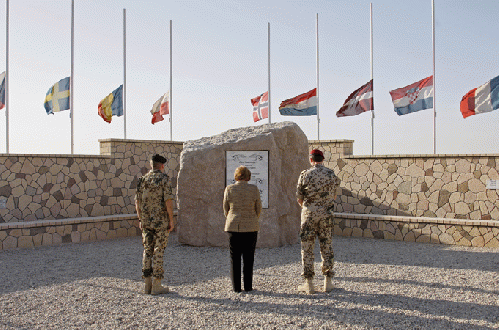
How Afghanistan became a NATO war NATO was given a central role in Afghanistan because of the influence of US officials concerned with the alliance, according to a US military officer who was in a position to observe the decision-making process. "NATO's role in Afghanistan is more about NATO than it is about Afghanistan," said an officer, who insisted on anonymity.
After Bin Laden Hit, U.S. Aides Raise Dubious Hopes for Peace The new narrative portrays the Obama administration as sharply divided between military and Pentagon leaders who want to maximize the number of troops in Afghanistan for as long as possible and some civilian advisers who want a much bigger and faster draw-down.

Adding Hurdles for Iran to Clear The current head of the International Atomic Energy Agency, who was essentially installed by Western powers, is adding new hurdles for Iran to clear before an agreement can be reached on its nuclear program.
Iranian Bomb Graph Appears Adapted from One on Internet The IAEA's familiarity with the Seifritz graph, two years before it was given graphs that bore a close resemblance to it and which the agency knew contained a huge mathematical error, raise new questions about how the IAEA could have regarded the Israeli intelligence as credible evidence of Iranian work on nuclear weapons.
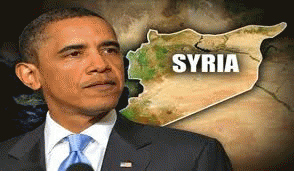
CORRECTED REPEAT -- Obama's Case for Syria Didn't Reflect Intel Consensus Despite strong opposition in Congress to the proposed military strike in Syria, no one in either chamber has yet challenged the administration's characterization of the intelligence. But the administration is vulnerable to the charge that it has put out an intelligence document that does not fully and accurately reflect the views of intelligence analysts.

Gaps in India's "Iran" bomb case The questionable character of the police case that the four Iranians conspired on the Delhi bombing does not rule out the possibility that it was an Iranian government operation, but it does indicate that SC investigators could not find convincing evidence of such an Iranian role.

